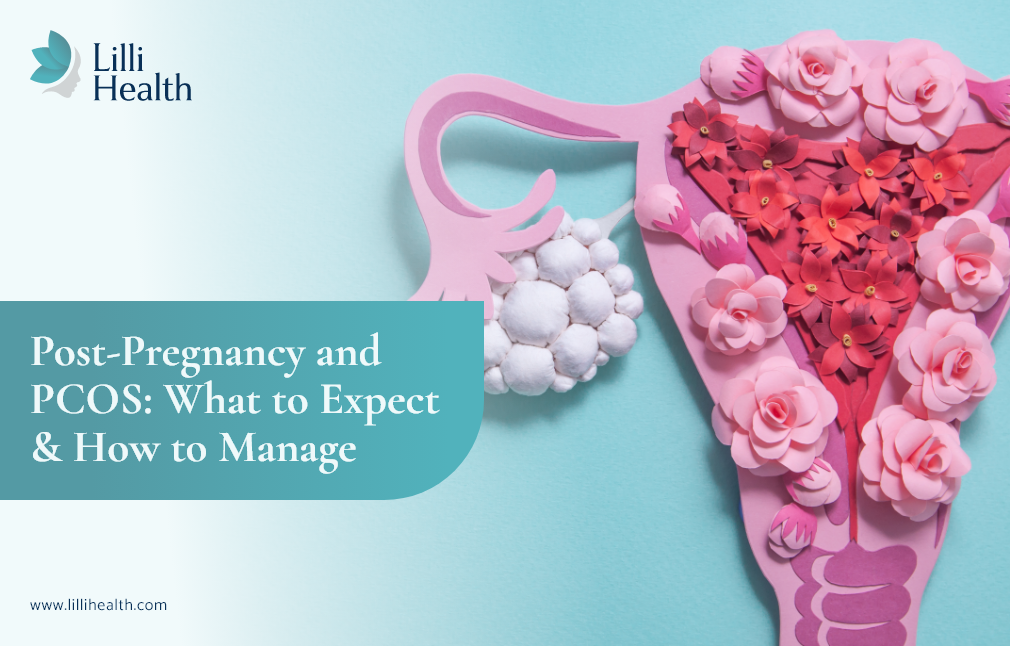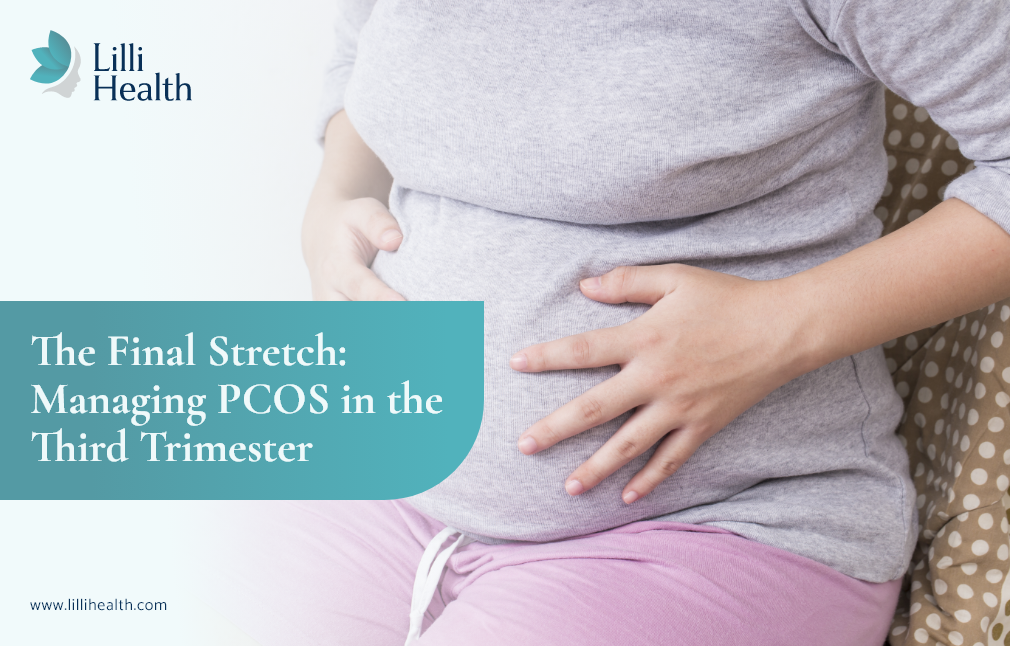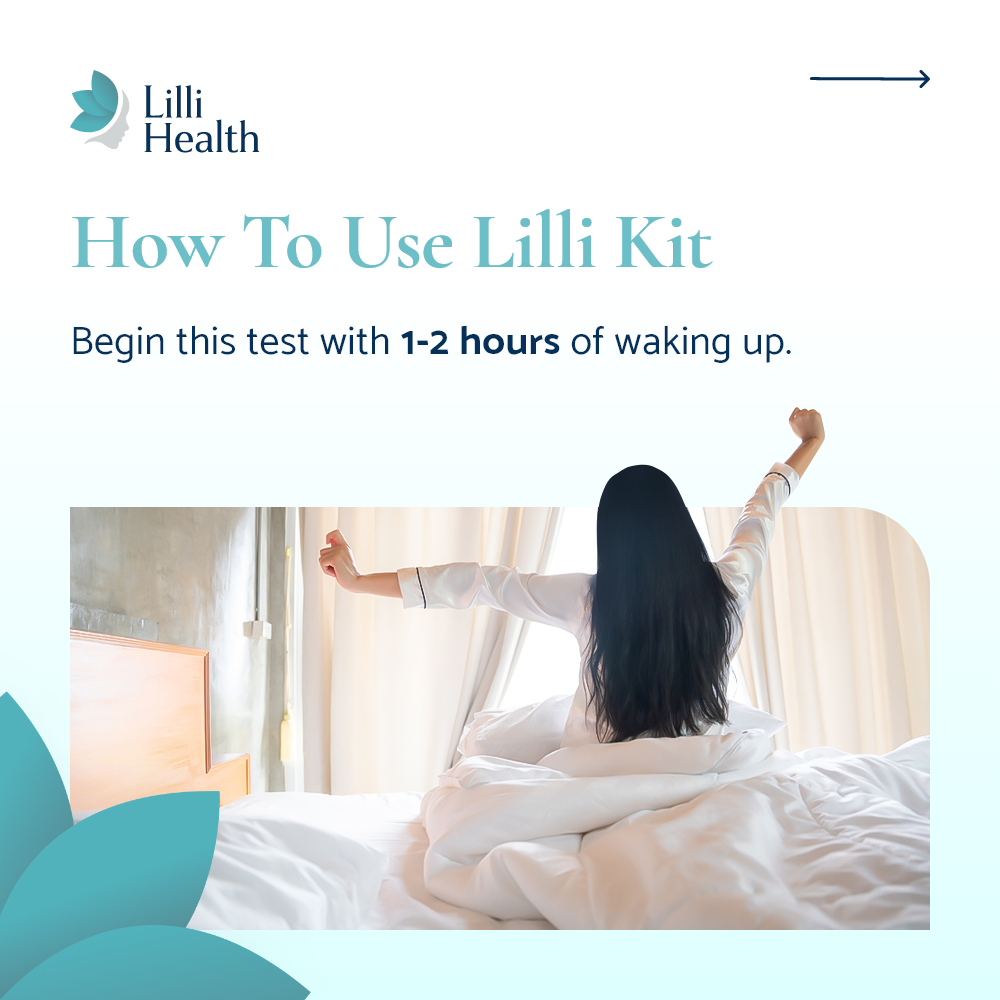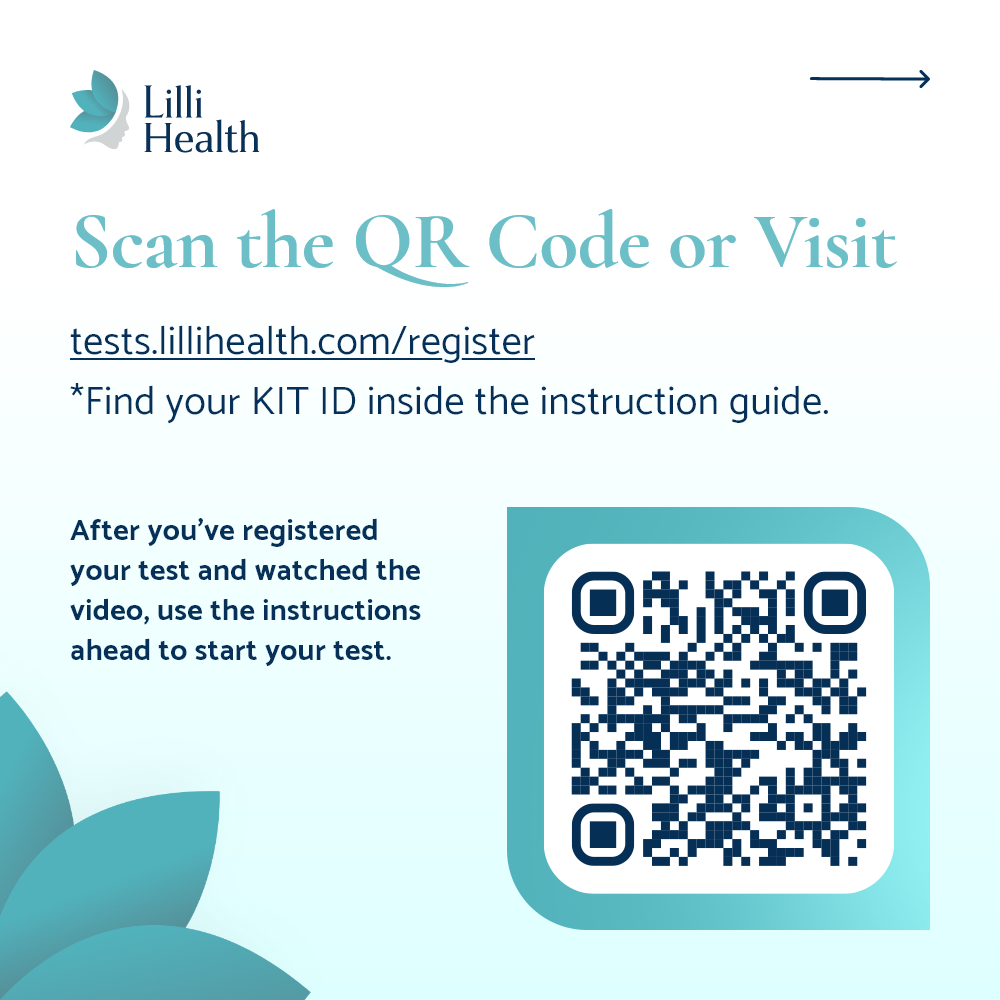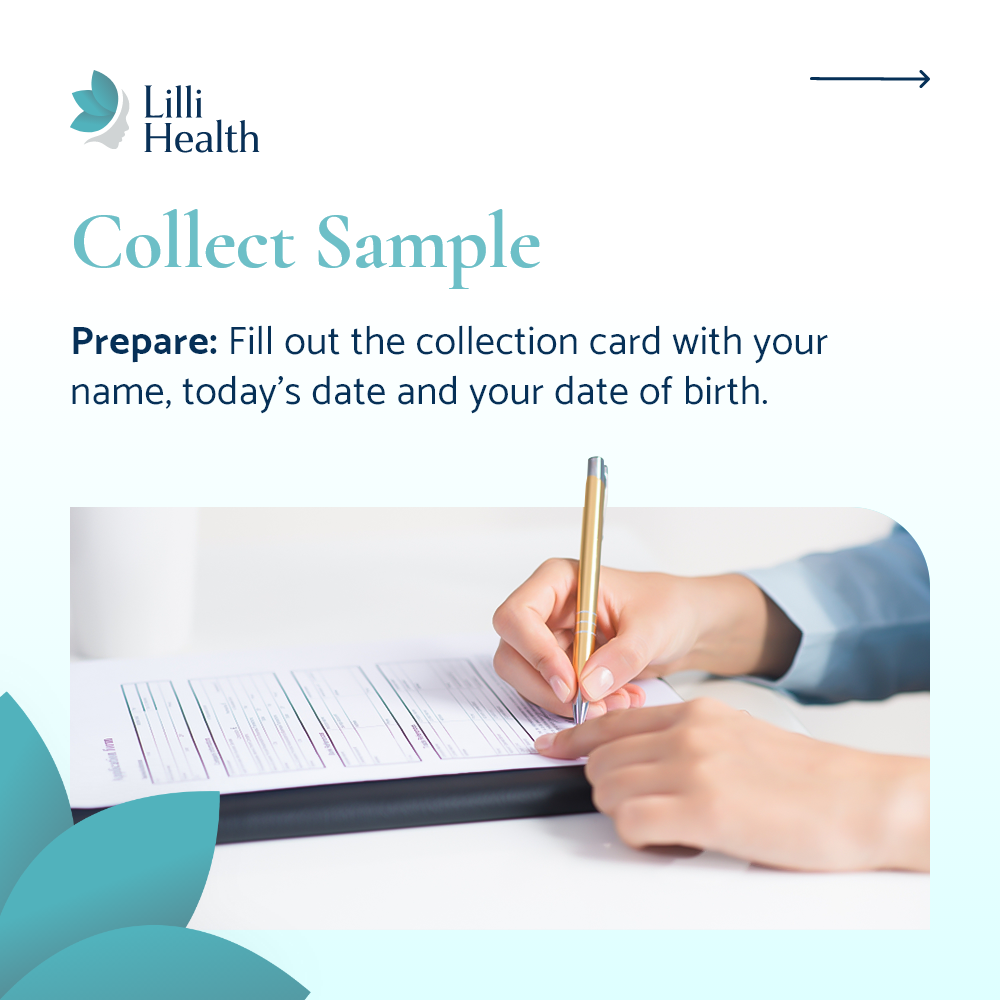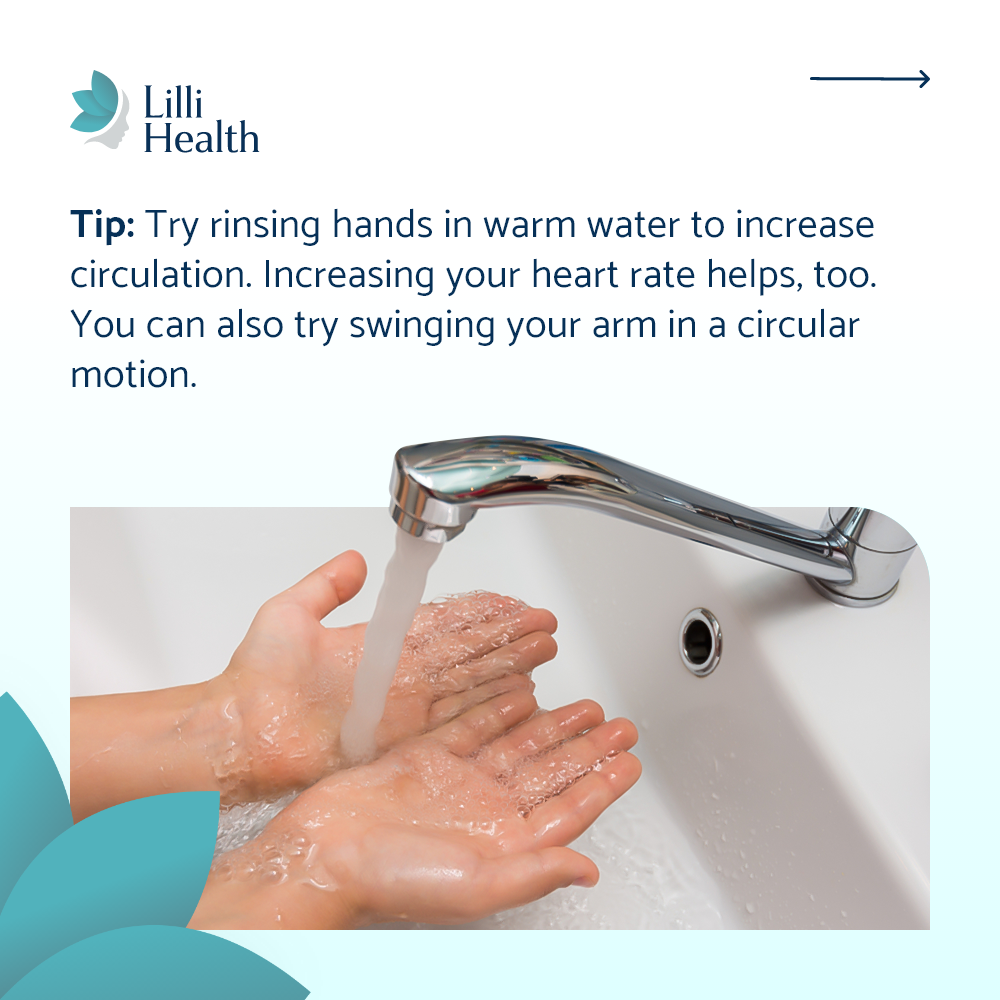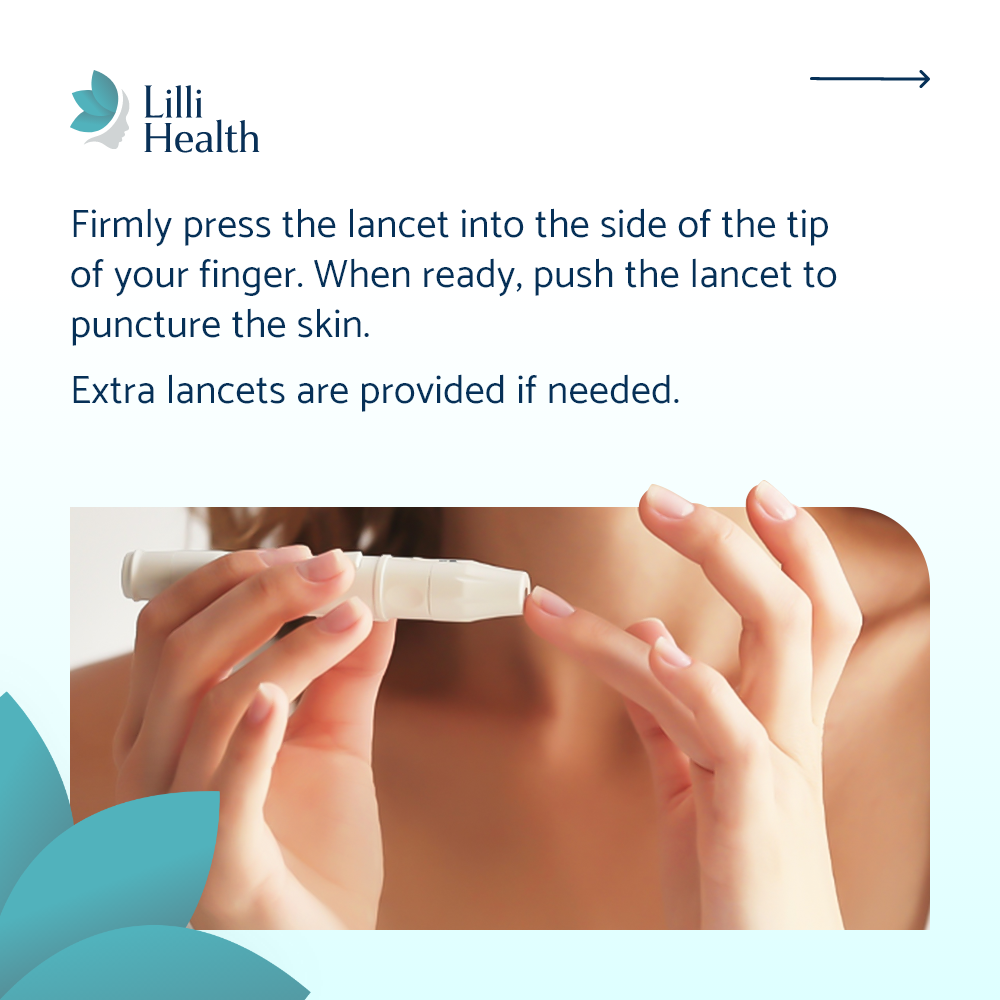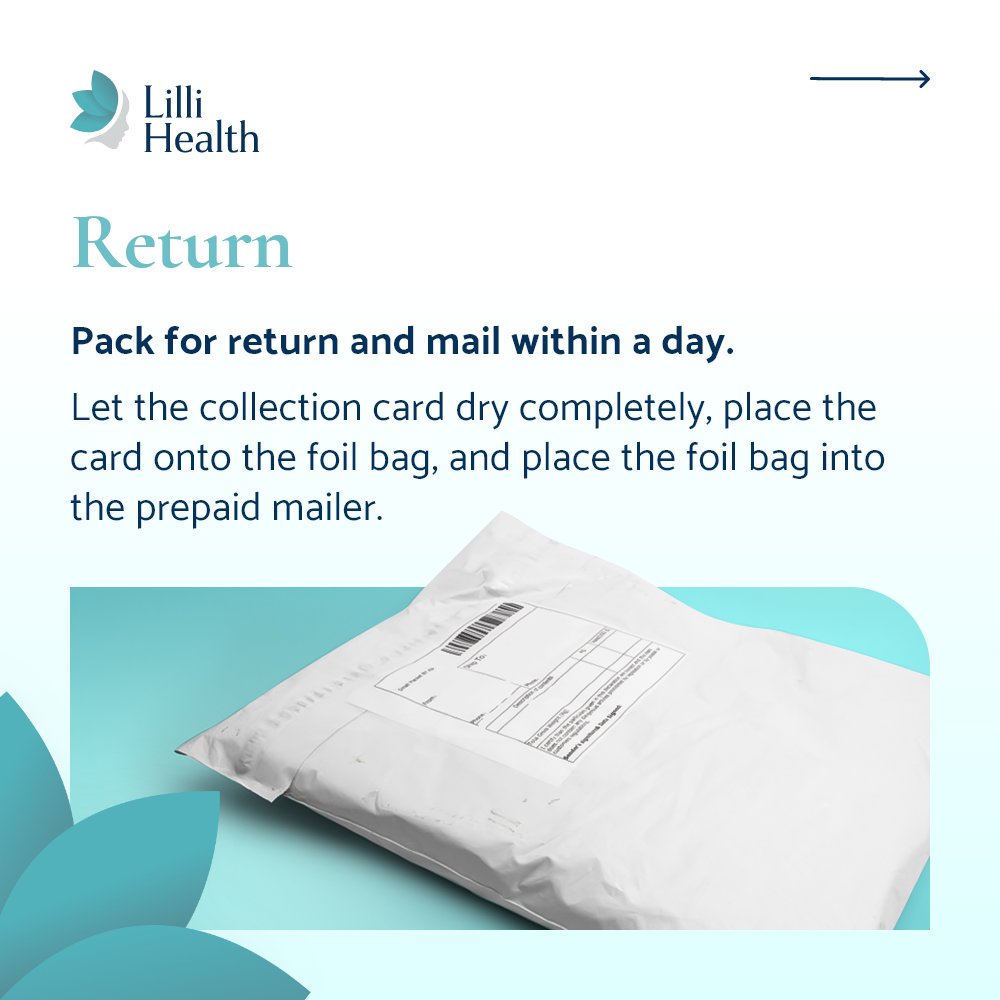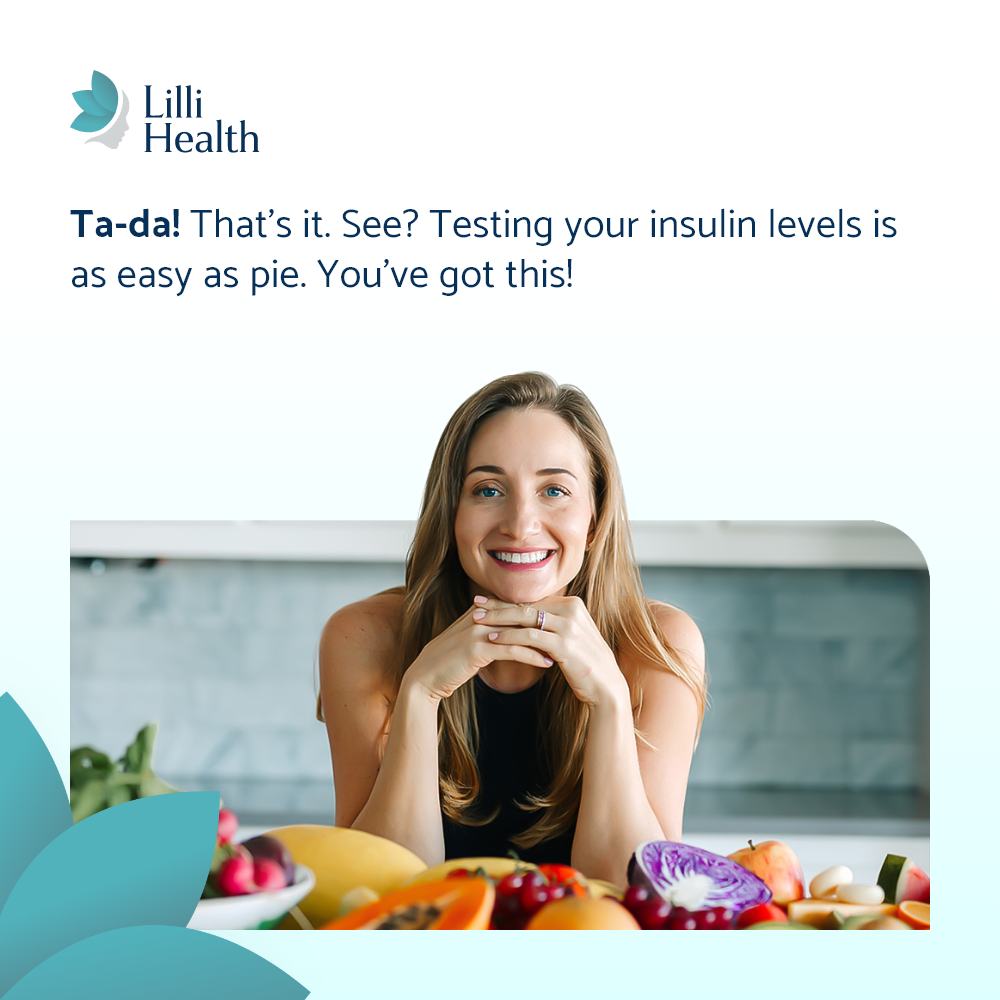
Polycystic Ovary Syndrome (PCOS) is a common hormonal issue that affects women during their childbearing years. One of the main causes of many PCOS symptoms is something called insulin resistance, which isn’t always well-known in regular healthcare.
There’s an important part of women’s health and PCOS that doesn’t get enough attention, and that’s checking your insulin levels regularly. High insulin levels can worsen many PCOS symptoms like weight gain, acne, irregular periods, and trouble getting pregnant.
So, it’s crucial to try and keep your insulin levels low when dealing with PCOS. That’s why we’re really excited to introduce Lilli Kits, which are a new and helpful tool. This blog will tell you more about what Lilli Kits are, how they can be a great addition to a low insulin lifestyle, and how they make it easier to manage PCOS.
Understanding Insulin Resistance and PCOS Symptoms
Insulin levels can be high for many years before your blood sugar levels go up. Depending only on A1c or blood sugar tests can be misleading because they might not show if you have insulin resistance. Surprisingly, some people with high insulin levels can have completely normal blood sugar and A1c results, hiding a hidden problem with their metabolism that could become a serious issue over time.
The Why Behind Lilli Kits
At Lilli Health, we believe in providing resources, tools, and education that are based on strong evidence and thorough research. Our aim is to assist millions of people worldwide in achieving wellness while managing PCOS. Understanding the limitations in the healthcare system, we have developed the Lilli At-Home Insulin Testing Kits to give individuals dealing with PCOS valuable information about their metabolic health, empowering them to take charge of their well-being.
Why Opt for Lilli Kits?
Our Lilli At-Home Insulin Testing Kits aren’t just blood tests; they’re game-changing tools for managing PCOS symptoms. They offer:
- Convenience of home testing: No more waiting at the clinic.
- Empowered decisions: Understand your body and make lifestyle choices that resonate.
- Enhanced tracking: Enhance medical consultations with tangible data.
- Hormone balance and PCOS awareness: Explore your hormone profiles in detail and take a holistic approach to managing PCOS.
Diving Deeper – Lilli Kit Components
Soon, we will be offering two Lilli Kits available through our website. Here’s a breakdown of each option.
- Fasting Insulin Test: Inside the kit, you’ll find a tool for a quick finger prick and a special card to collect a drop of your blood. This helps you figure out your fasting insulin, fasting glucose, and HOMA-IR, which gives you an insulin resistance score.
- Fasting and 2 Hour Insulin Test: With this kit, you get the results from the first test kit, plus the ability to do another test two hours after drinking something sugary (a dextrose packet mixed in water). This extra test helps us understand even more about how your body deals with insulin. We can see how your body reacts after eating and check if you might be producing too much insulin.
How Lilli Kits Benefit PCOS
Insulin resistance is a frequent player behind PCOS symptoms. By identifying it early on, we can improve hormone balance and PCOS treatment strategies tailored to individual needs.
Lilli Kits are more than just your typical PCOS self-care kits with supplements that are often promoted by wellness influencers online. They serve as guides to help you achieve better health, connecting the dots between your diet, lifestyle, and managing PCOS symptoms.
Lilli Kits & the Low Insulin Lifestyle
At Lilli Health, we strongly believe in the benefits of adopting a low insulin lifestyle. Our mission is to simplify your journey and provide you with the tools, resources, and trustworthy information you need to conquer PCOS and maintain lasting health.
With Lilli Kits, you can:
- Track insulin levels over time
- Make educated health decisions based on real-time, accurate data
- Empower yourself with knowledge and advocate for your wellbeing
And soon, with our upcoming Lilli app, tracking your insulin levels will be even more convenient. Just enter your test results and keep tabs on your goals, statistics, and symptoms all in one place. This integrated feature allows you to monitor changes in your insulin levels over time, giving you valuable insights into how they relate to your PCOS symptoms.
Final Thoughts: PCOS Management Made Easy
Dealing with PCOS can be like navigating a maze, especially when there’s so much confusing information out there. Lilli Kits aim to simplify this journey, offering a clearer path forward. As advocates for PCOS awareness, our vision is to transform healthcare by addressing insulin resistance, regardless of the underlying condition. Through Lilli Health, we hope to lead the way for women worldwide.
For an in-depth exploration of the science behind the low insulin lifestyle and to learn more about our company’s mission and vision, you can get our book, Low Insulin Lifestyle, today!
FAQs
How do I get my test results?
Once you’ve completed your at-home insulin test, simply place the test strips in the provided shipping package, and you’ll receive your results via email.
Is my information safe?
Yes, all the medical information we collect is sent to a lab for processing and to provide you with your results. You’re the only one with access to your sensitive health information, and we won’t share it with any other party.
If you choose to participate in our research study, your anonymous results may be shared with medical professionals conducting the study.
What’s a normal insulin level?
A normal fasting insulin should be below 8 mIU/ml (55 pmol/l).
A 2 Hour insulin level should be below 50 mIU/ml (350 pmol/l)
How often should I test my insulin levels?
There’s no limit on how often you want to test your insulin, but at the minimum, we recommend
- Fasting Insulin once every 6 months
- 2-Hour Insulin Test at least once per year
If you’re just beginning to follow a low insulin lifestyle, it’s a good idea to check your fasting insulin every 2-3 months and your 2-hour insulin every 6 months until your insulin levels are in the normal range.

